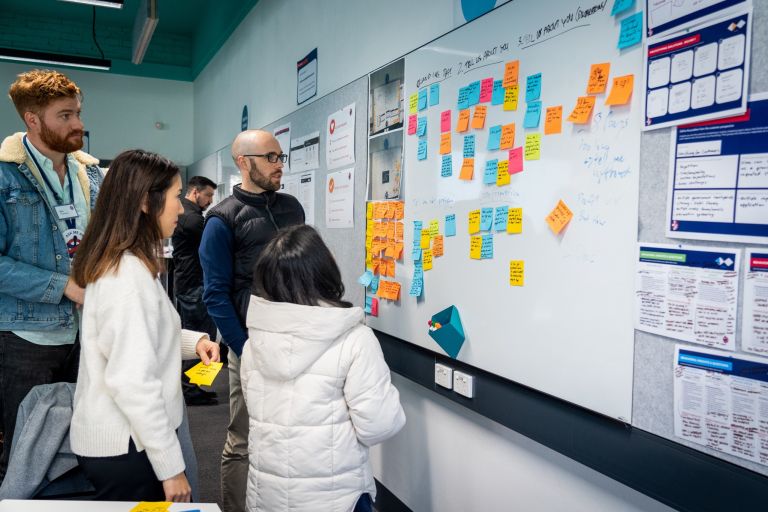Government provides essential services that should be easy to access for everyone, but unnecessary frictions can get in the way of this. The term ‘sludge’ refers to this unnecessary administrative burden and effort, which can make it hard for customers to get things done, such as confusing instructions, complicated forms or hard to navigate websites.
A 'sludge audit' helps public servants to identify and quantify frictions that customers experience and prioritise which sludge to reduce first.
Streamlining processes
The sludge-a-thon was devised to rapidly support multiple sludge audits. In its first year, 11 customer processes were audited at the 2021 sludge-a-thon. The goal was to discover and reduce sludge to save customers time and effort.
Using behavioural science, public servants designed solutions that are projected to save customers $24.5 million annually and the equivalent of 141 years in time. For example:
- A small change to the MyService login process flipped the default for customers accessing their account when they have forgotten their password.
- This led to a saving of 7 minutes for each customer, who would otherwise have had to contact Service NSW for support.
Saving time and effort
Reaching more customers in 2022
In 2022, the sludge-a-thon increased in scope, this time it opened to all areas of government. Participants worked to identify and reduce sludge in 12 customer facing processes across NSW, for wide ranging customer impact.
View the resources in the Sludge Toolkit that help government reduce sludge and deliver on its customer commitments – saving customers time, money and effort.
2022 sludge-a-thon
"I thoroughly enjoyed the sludge-a-thon. It’s about getting the right message to our customers at the right time without bogging them down with paperwork or jargon (sludge)."
– Sludge-a-thon participant
"We applied for sludge-a-thon with the intention to implement a solution and we will have a meeting with our manager tomorrow to discuss implementation."
– Sludge-a-thon participant
